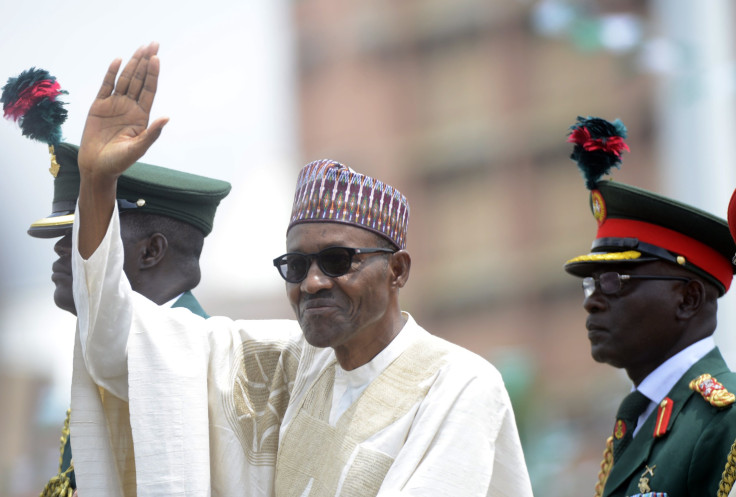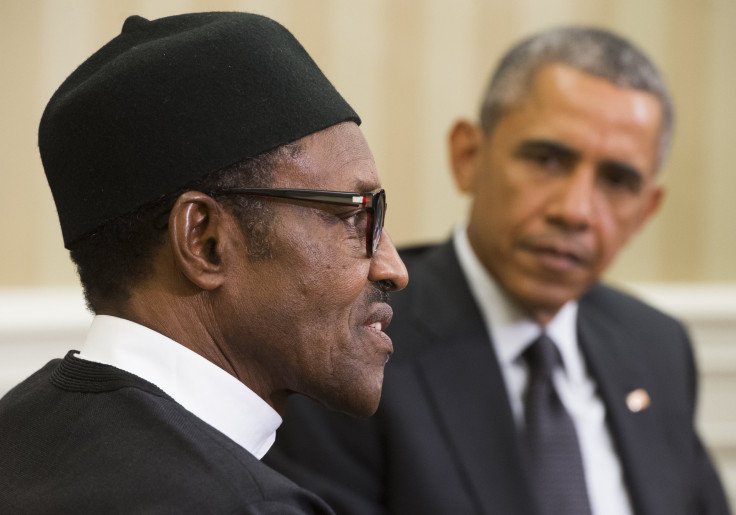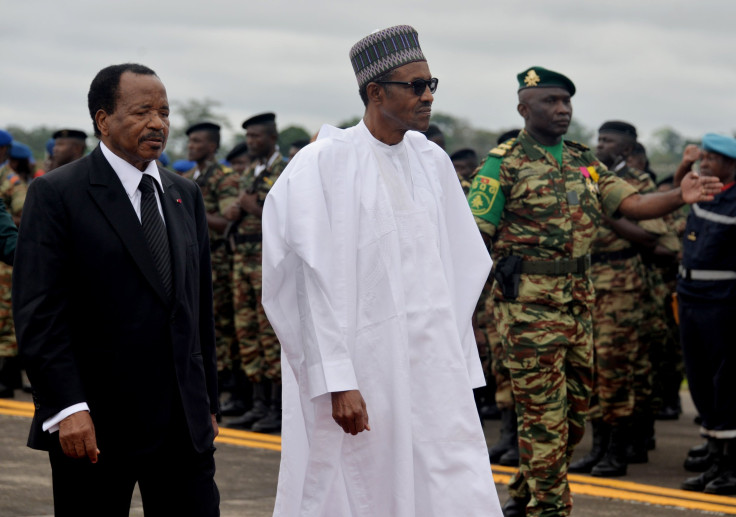Buhari 100 Days In Office: Nigerian President Tackles Corruption, Boko Haram But Not Economy

Nigerian President Muhammadu Buhari received mixed reviews on his performance from analysts of his first 100 days in office. The 72-year-old will celebrate the milestone Saturday, after his presidential inauguration on May 29 marked the first democratic transfer of power in Nigeria’s history. Buhari has taken steps to crackdown on the West African nation’s corrupt bureaucracy and Boko Haram’s six-year insurgency. But the Nigerian leader has not yet appointed a cabinet or detailed a plan to tackle the country’s struggling economy, experts and analysts said.
"This has been viewed in a disappointing light, as the president was expected to be a more decisive leader than his predecessor," Ronak Gopaldas, a sovereign risk analyst at South Africa's Rand Merchant Bank, told AFP news agency Thursday. "As a president who campaigned on a message of change, especially security and corruption, the big elephant in the room remains the economy, and clarity in this regard is sorely lacking.”
Nigeria’s currency plunged against the dollar this week as the parallel market exchange rate rocketed amid an increased demand for U.S. currency in the country. Nigeria’s commodity-linked naira has turned volatile due to China’s economic slowdown, which has sent the prices of raw materials such as copper and oil into a freefall. The naira has fallen around 15 percent over the last year, which has fueled inflation despite the central bank spending billions to bolster the Nigerian currency.
Following a global sell-off and a record trading day in China, the Nigerian Bureau of Statistics said the West African country’s annual economic growth in the second quarter plummeted at the end of August to 2.35 percent from 6.54 percent a year earlier, Reuters reported. Nigeria’s oil dependency has put the country’s economy at risk in the wake of a global oil glut and the prospect of a slowing economy in China, the world’s second largest crude consumer.

Nigeria’s federal revenues are also down by about 30 percent. Oil and gas exports account for more than 90 percent of Nigeria’s foreign exchange earnings and about 70 percent of government revenues. Nigeria is gradually diversifying its oil-dependent economy and becoming more services-oriented through retail and wholesale trade, real estate, information and communication. But oil remains its primary source of income and Buhari has yet to unmask a clear vision for economic policies.
Nigerian Vice President Yemi Osinbajo said the country’s’ economy is in the worst state in its 55-year independent history and estimated debts at some $60 billion. Buhari has largely pinned Nigeria’s financial woes on his predecessor and oil sector fraud. He accused former President Goodluck Jonathan of leaving Nigeria’s treasury “virtually empty,” which forced state employees to go months without pay earlier this year.
Buhari, a former petroleum minister, recently sacked the entire board and executive directors of Nigeria’s state-run oil company, Nigerian National Petroleum Corporation, and appointed a Harvard-educated lawyer as the new managing director to lead reforms. The scale of graft within the Nigerian National Petroleum Corporation was revealed in a report published in August by a New York-based international governance watchdog. The report said the state oil company withheld about $12.3 billion from the sale of 10 million barrels of oil over 10 years. However, Buhari has still not selected a petroleum minister, a particularly notable vacancy in his largely empty cabinet.
"The minister is crucial to carrying out any oil sector reform agenda," Alexandra Gillies, director of governance programs at the Natural Resource Governance Institute, the policy think tank that authored the report, told International Business Times in August. "The mismanagement of the oil sector has reached quite severe levels, so there is a lot to be done. [Nigerian National Petroleum Corporation] absolutely requires restructuring, which will require a clear vision. That would typically be developed from within the ministry."
Buhari and his administration traveled to Washington, D.C. at the end of July and met with U.S. President Barack Obama at the White House to discuss various topics, including Nigeria's economy, the fight against graft and the Boko Haram terrorist group. Obama allegedly gave Buhari the names of Nigerian oil thieves who had been stealing and illegally stockpiling the West African nation's oil, according to Nigerian newspaper the Punch, which cited sources within Buhari's administration.

Since taking office in May, Buhari has made efforts to revive the government’s campaign against Boko Haram and the Nigerian army has reclaimed territory from the extremist group. The Nigerian president has met with his counterparts in Chad, Niger and most recently Cameroon, three neighboring countries that have also suffered from attacks by the insurgents and are contributing to the regional fight. The Nigerian army said Tuesday its troops have recaptured Gamboru Ngala, a key town on the border with neighboring Cameroon, from Boko Haram, AFP reported.
A Nigerian commander, Maj. Gen. Iliya Abba, was chosen in July to lead an 8,700-strong multinational joint task force, which includes soldiers from Benin, Cameroon, Chad, Niger and Nigeria. The new regional force is expected to be deployed into battle soon, though no date was specified for tactical reasons.
In June, Buhari relocated Nigeria’s military command center to Maiduguri, the capital of northern Borno state, which has been a hotbed for Boko Haram violence. He also replaced Nigeria’s military top brass in August in a fresh attempt to take out Boko Haram within three months. But this is “near impossible” to achieve, Andrew Noakes, coordinator of the Nigerian Security Network of analysts, told AFP. But the president has made impressive progress.
"In a short space of time he has made great strides by focusing attention on tackling the underlying causes of the insurgency rather than just its symptoms, by bringing new officers into senior positions in the military, and by relocating the military command to northeast Nigeria," Noakes told AFP on Thursday. "Now we must wait to see whether these changes will pay dividends."
© Copyright IBTimes 2025. All rights reserved.




















